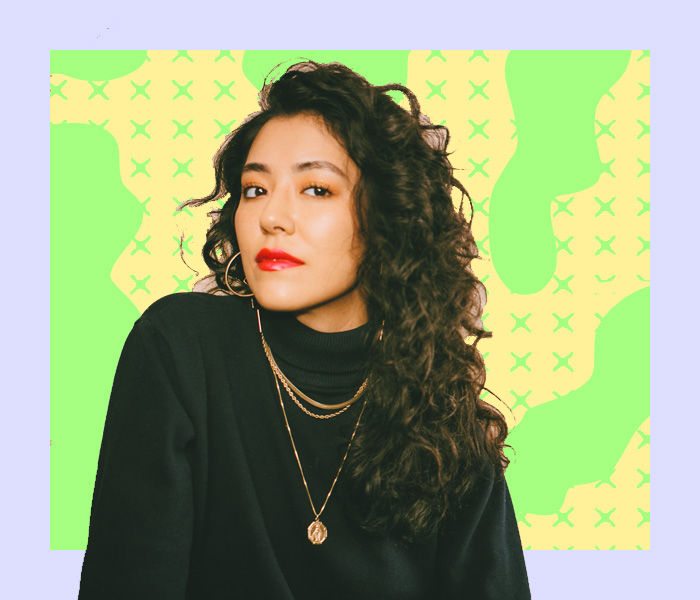1
Marina Tijerino

Artist and singer Marina Tijerino didn’t always identify as Asian-Latinx. Born in Japan to Japanese and Venezuelan parents, she didn’t have the language necessary to ID herself growing up. Now, she realizes, she doesn’t need to do it in one word.
“My entire existence felt like a culture clash all the time,” she tells me. “When your parents are from two completely different cultures, it causes a lot of tension. It’s not always negative.”
Raised between the United States and Japan, Marina didn’t have a strong community to call her own. “A huge aspect of my life was feeling that I didn’t have any roots,” she says. “I felt rootless.” It didn’t help that her family moved around, which made her feel disconnected from both sides. But eventually, it was her family, who came to define their identity on their own terms, that helped her understand who she was. That’s why, even now that she lives in Utah – a place where she had no roots – she feels at home.
“What is fascinating is having a mix of those cultures is that we are the amalgamation of entirely different ways of living,” she adds. “I haven’t met anyone else who is Japanese-Venezuelan, other than my siblings. It’s like we’ve created our own culture.”
Food has certainly played a major role in building a complete picture. Her mother sometimes used Japanese ingredients or meat styles to make Venezuelan arepas. This culinary fusion was something they could call their own, something that could only have existed in households like hers.
During her childhood in Japan, she’d often hear the word hafu (ハーフ) to refer to people of mixed background. But with the word meaning half in English, Tijerino felt the word had negative connotations. “To call someone half isn’t factual,” she says. “I am [a] full person. I’ve had to continuously explain myself and my existence.”
Additionally, Tijerino explains, she doesn’t use the word hafu because in Japan, it upholds the erroneous narrative that most people are half white. “That eurocentric view of ethnicity exists everywhere,” she says. “The ideal hafu is someone with blue eyes, light skin, blonde hair. Along that vein, I try and remind people that if you’re mixed race in Japan and you’re dark or … Black, you deal with so much more discrimination… Anti-Blackness in Japan is intense.”
Instead, she prefers the term dabaru (ダブル) – a term that’s gaining more traction to describe those of mixed heritage – or double. “It’s saying something like, I’m not half; I’m both these things,” she says.
Belonging to these two groups has shaped her experiences and formed her worldview. But it’s not all been positive. As someone of Venezuelan and Japanese heritage, she belongs to two groups that are othered and exoticized. “When I’m around Latino guys, even though I’m also Latina but have this Asian side, I’ve been exoticized a lot,” she says. “Some of the worst [abuses] I’ve encountered have been from people of color that are obsessed that I’m part Japanese, part this. It’s like I’m a rare prize. That kind of exotification early on is taught to be a compliment. [But] you’re not seeing me as a person; you’re seeing me as an exciting adventure.”



